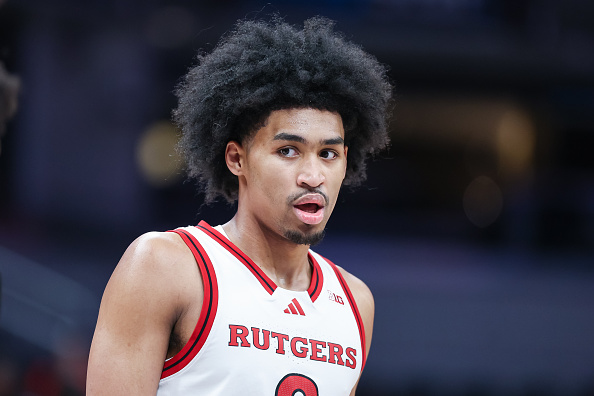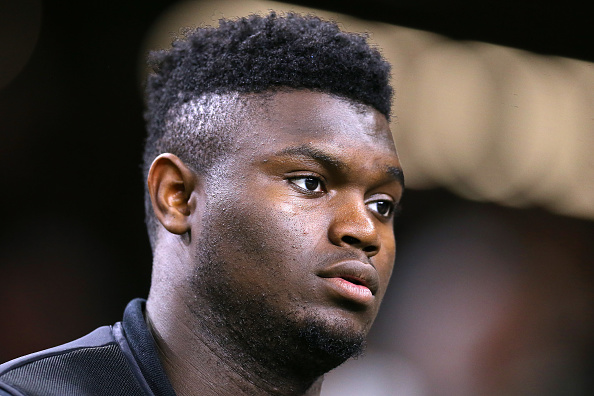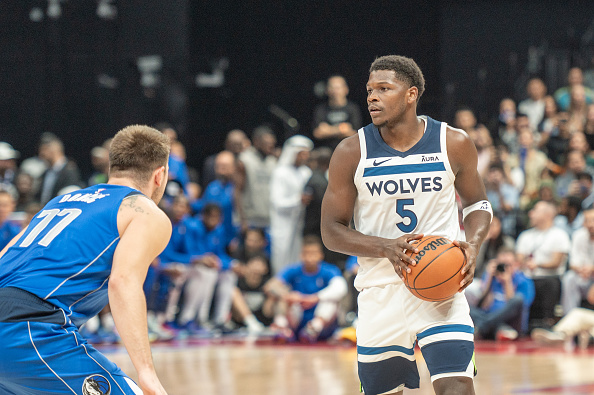1. New Orleans Pelicans – Zion Williamson
This pick was essentially a foregone conclusion since last winter. Zion Williamson was going to be the first overall pick in the draft, no matter who was making the selection. In New Orleans, Zion will be alongside arguably one of the best young cores to add a top overall pick. With Lonzo Ball, Brandon Ingram, Josh Hart, and several future picks, the Pelicans appear to be set up for a bright future with Zion at the core of it all.
2. Memphis Grizzlies – Ja Morant
Morant has also been the consensus number two for a while now, so it’s unsurprising Memphis selected him here. This selection marks a wholesale change for the Grizzlies, away from the “Grit & Grind” era that featured Mike Conley and Marc Gasol into a new, fast-paced era with Morant and Jaren Jackson Jr. at the forefront. After trading Conley to Utah on Wednesday and getting a couple first round picks in return, this pick was an obvious choice to expedite the wholesale rebuild.
3. New York Knicks – RJ Barrett
A former number one recruit in high school, RJ Barrett is widely considered the most talented player left on the board. Barrett can score from all over the floor, though he is prone to taking contested shots. It’s hard to analyze Barrett’s fit, as the Knicks have high hopes for free agency and nobody really knows how that team will look come October. If they strike out this summer, he will be on the front line of a rebuild. If they sign a couple stars, he could provide bench scoring as a “heat check” wing player.
4. Atlanta Hawks (via Lakers) – De’Andre Hunter
This draft was set to become unpredictable at number four, and it did just that. Hunter was a key player on a National Champion team at Virginia, as a lockdown defender that makes his open threes. Alongside Trae Young, Kevin Huerter and John Collins, his defense will be vital and the floor spacing should create open shots for him. He has one of the highest floors in the draft, but the fourth pick seems a little high for a player who doesn’t quite scream “star potential”.
5. Cleveland Cavaliers – Darius Garland
Garland is generally considered the best shooting point guard in the draft, and debate rose in the days before the draft about whether he’s the best point guard in the draft period. He only played five games at Vanderbilt last season due to injury, so the sample size at the collegiate level is somewhat small, but the Cavaliers selected Kyrie Irving in 2011 after he played only 11 games at Duke. Cleveland already has last year’s eighth pick in Collin Sexton as the lead ball handler, so there is some difficulty there in terms of fit, but Garland’s shooting ability should fit well next to Sexton’s driving and playmaking abilities.
6. Minnesota Timberwolves (via Suns) – Jarrett Culver
Culver is a long, versatile defender with underwhelming shooting numbers, especially from beyond the arc. He was a key part of why Texas Tech made it to the National Championship game last season, and has showed he’s capable of improving on the offensive end, but the most effective part of his game right now is his defensive versatility in guarding multiple positions.
7. Chicago Bulls – Coby White
During the few days before the draft, the line was drawn between Morant, Garland and White, and the rest of the guards in this draft. He’s a solid shooter with mechanics that could use some work to ensure his success at the NBA level. After focusing on the frontcourt in recent drafts, the Bulls elected to select a lead ball handler to join Lauri Markkannen and Wendell Carter in the young core for Chicago.
8. New Orleans Pelicans (via Hawks) – Jaxson Hayes
Hayes is a 6’10” center that is still very raw, but he has shown the ability to be a high-level rim-runner and athletic defensive anchor. After garnering a couple young guards and wing from the Lakers and selecting Zion with the first overall pick, the Pelicans were in need of a center and this fit allows Hayes to grow alongside the young core in place.
9. Washington Wizards – Rui Hachimura
Hachimura is a prospect with a great physical frame and wingspan, but still raw skills in terms of ball-handling and playmaking. With the Wizards franchise seemingly in disarray and likely looking toward a long rebuild, Hachimura shows a high upside (and albeit gamble) for a team in desperate need of a success story.
10. Atlanta Hawks (via Mavericks) – Cam Reddish
After selecting De’Andre Hunter with the fourth pick, the Hawks again go with a long player on the wing. Reddish can also defend multiple positions and knock down open jumpshots, especially in the wide open Atlanta offense. Though Reddish struggled at Duke last season, I really do like the fit with less responsibilities on a Hawks team full of shooters that will allow him to spot up on a more consistent basis.
11. Phoenix Suns (via Timberwolves) – Cam Johnson
Cam Johnson might just be the best pure shooter in this draft, but this selection still feels a bit early, if not wrong altogether for Phoenix. The Suns are likely hoping to alleviate Devin Booker’s scoring responsibility, and shooting is obviously a premium in today’s NBA, but Johnson’s defensive shortcomings will likely be emphasized next to Booker as well.
After the clear top-tier point guards were taken, Phoenix was seemingly in a spot without a clear fit here, and I’m unsure as to how Johnson will turn out on this team.
12. Charlotte Hornets – PJ Washington
An offensively versatile big man who can pass and space the floor, Washington has the potential to be a strong two-way player in the future. He is already solid at most aspects of the game, but has shown room for improvement across the board as well, and fits with the roster whether or not they bring back Kemba Walker this summer. This is a safe pick for a franchise fighting to remain relevant, with the potential for upside down the road.
13. Miami Heat – Tyler Herro
Herro is a good shooter from beyond the arc, and he is a solid defender for the guard position. He will likely be a very good shooter at the NBA level, but the development of the other aspects of his game will be key to his overall success. Miami is likely looking toward something of a rebuild in the post-Dwyane Wade era, and Herro will both help them stay relevant now and build toward the level.
14. Boston Celtics (via Sacramento) – Romeo Langford
Langford was a top recruit for Indiana, but had a largely underwhelming season for the Hoosiers (one in which they missed the tournament). He struggled shooting throughout the year, and had thumb surgery after the season. With Kyrie Irving and Terry Rozier both entering free agency (Rozier being restricted), the Celtics are in need of a guard and elected to seemingly take a flyer on a former standout of the class who still possesses a high upside.
15. Detroit Pistons – Sekou Doumbouya
Doumbouya is a strong physical prospect that will need time to develop into an NBA player, and this pick likely points to a full reset for Detroit. With the team in flux after being swept by Milwaukee last season, a raw prospect like Doumbouya that projects as a switchable defender with offensive upside is a good place to start a rebuild that will likely continue for a few years to come.
16. Orlando Magic – Chuma Okeke
The Orlando Magic finally made the playoffs last year, and even stole a game from the eventual champion while they were there. Okeke is a strong, defensively versatile defender with effective touch on his jumpshot. Many mock drafts had him lower than 16, but I truly do believe this pick is a good one for an Orlando team stocked with bigs and desperate for players on the wing.
17. New Orleans Pelicans (via Nets) – Nickeil Alexander-Walker
A 6’5” shooting guard, Alexander-Walker is a strong playmaker and solid spot-up shooter. He slots in nicely behind Jrue Holiday, as well as with the young group being put together in New Orleans. The future backcourt pairing alongside Lonzo Ball has the potential for elite defense and playmaking from both of them.
18. Indiana Pacers – Goga Bitadze
Bitadze is a versatile offensive big man who can hold down a defense with his shot blocking abilities. On a Pacers roster with generally low-post big men such as Myles Turner and Domantas Sabonis, Bitadze can space the floor with his shooting and playmaking abilities.
19. San Antonio Spurs – Luka Samanic
An elite athlete who stands at 6-foot-11, Samanic is a defensively switchable big man. He struggles on the offensive end, with a largely ineffective jumper and small frame that prevents him from being a true post presence. If he can put on some weight or develop a jumper (or both), he could be a very effective player for San Antonio in the future.
20. Philadelphia 76ers (via LA Clippers) – Matisse Thybulle
Thybulle is an elite defender who makes open shots from beyond the arc. After trading Landry Shamet last season, the 76ers are in desperate need of more three-point shooting, and his ability to play lockdown defense at the guard and wing positions is vital in today’s NBA.
21. Memphis Grizzlies (via Thunder) – Brandon Clarke
Clarke is someone many people had pegged as a lottery pick, as his defensive versatility and athleticism fit today’s NBA perfectly. His jumpshot, though still not great, has improved mightily since he entered college and projects as one that will likely improve more. Alongside Ja Morant and Jaren Jackson Jr. in Memphis, his defensive abilities as a strong on-ball stopper and shot blocker look to be vital skills in the development of this young team.
22. Boston Celtics – Grant Williams
Tennessee ran its offense through Williams on the post, and he developed into a crafty scorer and intelligent playmaker. He’s an undersized forward, but his athleticism and basketball intelligence make up for it. With Al Horford opting out of his contract to become a free agent, the idea of grabbing a playmaking forward with good intangibles makes sense (whether that be to learn from Horford or play as “Horford-Lite” in short stints in certain matchups should Horford leave).
23. Utah Jazz – Darius Bazley
A skilled ball-handler for his size, Bazley is still an inconsistent player who did not play college basketball last season. Instead, he chose to intern with New Balance and work out in preparation for the NBA. He has a high upside with the risk of some serious downside as well, but with no real stars locked in on the wing for Utah, it’s still a calculated risk.
24. Phoenix Suns (via 76ers) – Ty Jerome
With Ty Jerome, the Suns finally got the playmaking point guard they’ve been looking for. He’s not an elite athlete, but his fundamental skills tend to close the gap a little bit. He was a strong defender and an elite pick-and-roll ball-handler at Virginia, and alongside Devin Booker and Deandre Ayton, those are two vital skills to have.
25. Portland Trail Blazers – Nassir Little
Little is a prototypical “Three and D” wing, and one who was projected by many as a lottery pick. He is already a solid defender with the ideal frame for guarding multiple positions, with the potential to be an elite defender and solid shooter. With Damian Lillard and CJ McCollum in the backcourt, defense on the wing is a priority for Portland, and Little could be the steal of the draft precisely for that reason.
26. Cleveland Cavaliers (via Rockets) – Dylan Windler
Cleveland continued their search for shooting by adding Dylan Windler on the wing to pair with their new backcourt of Sexton and Garland. Windler feels like a slight reach here, but the Cavaliers are in desperate need of offensive weapons and Windler certainly is one. His ceiling is a little low compared to some guys left on the board, but you know exactly what Windler will bring. Despite his lack of athleticism, he will always bring fantastic shooting touch (especially beyond the arc).
27. Los Angeles Clippers (via Nuggets) – Mfiondu Kabangele
Kabangele is a very strong rim protector, as well as a solid offensive player in the pick-and-roll and pick-and-pop. With the Clippers looking to make a splash in free agency, Kabangele is an effective post defender and shot blocker who can be plugged into many different-looking rosters.
28. Golden State Warriors – Jordan Poole
Poole is a 6-foot-5 guard who flashes an electric scoring ability, but can frustrate you as much as he amazes you. He is a very skilled ball-handler and shooter, and a top-tier one-on-one player, but he is built from the Nick Young/J.R. Smith mold, and struggles with fundamentals and will tend to take wild shots. If Poole can develop behind Steph Curry and Klay Thompson, Poole will be a nice fit to provide scoring off the bench, but I wouldn’t expect much more from him.
29. San Antonio Spurs (via Raptors) – Keldon Johnson
Johnson is a nice pick for the Spurs, as he is a guard with good size who plays hard, but lacks the fundamentals to be an elite player. San Antonio is one of the best places on earth for him to figure that out, and if he does, Johnson has the potential to be a starting point guard in the NBA when all is said and done.
30. Cleveland Cavaliers (via Bucks) – Kevin Porter Jr.
The Cavaliers are in a complete rebuild, and they took a gamble here. Porter’s talent is possibly even worth a top-10 pick, but the results on the court have not been nearly as good. At his best, Porter projects as a switchable defender and elite shot-creator, but his effort must improve if he ever wants to get close to that. Cleveland waited until the end of the third round to gamble on him, and it will be interesting to see how he fits alongside the young backcourt in place.







